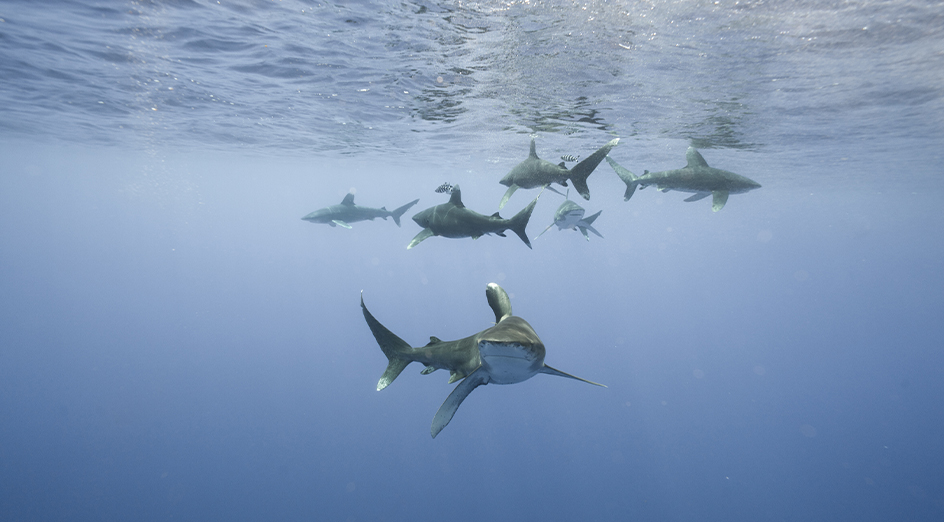An international team of researchers reviewed how greatly reduced shark populations impact ecosystems to help inform coastal development and conservation.
Dr Mark Meekan, from The University of Western Australia's Oceans Institute, co-author of the study led by Florida International University and published in Science, said sharks were vital in supporting a stable ecosystem.
"Sharks play many diverse and hidden roles in maintaining a balanced ecosystem — they can be predators, competitors, facilitators, nutrient transporters and food," Dr Meekan said.
"However, overfishing, climate change, habitat loss and the blue economy have greatly reduced shark populations, altering their roles and effects on ecosystems."
Scientists found gaps remained in our understanding of the ecological importance of sharks, necessitating research, especially on small bodied and deepwater sharks and shark-driven nutrient transport.

Image: Sharks play many diverse and hidden roles in maintaining a balanced ecosystem. Photo credit: Andy Mann
The findings suggested management should aim to maintain ecological function rather than just maximising the number of sharks, especially for influential and threatened macro-predatory species such as tiger and great white sharks.
"Due to the many roles sharks play in the ecosystem managing populations for biodiversity is important," Dr Meekan said.
"Making changes to fisheries and achieving recovery goals is challenging but important as it affects abundance, distribution, health, and behaviour of sharks and their prey."
Researchers found the roles shark have in ecosystems could change over time due to disturbances to their habitats such as climate change. The team concluded that regional and national-scale fisheries management and large protected areas were required to conserve some species.
"Changes to fisheries and protected areas are becoming easier to facilitate on a large scale due to technological advances such as drones, video monitoring systems and satellite-based vessel tracking," Dr Meekan said.
"Harnessing public support, including integration of local cultural values into management, will also increase the chances of rebuilding and maintaining diverse shark populations."
Lee Crockett, executive director of the Shark Conservation Fund which funded the study, said sharks are critical to ocean health.
"This landmark study serves as confirmation that marine conservationists, philanthropists, policymakers, and the public alike need to recognise that sharks are keystone species that have a now-proven significant effect on marine environments," he said.






